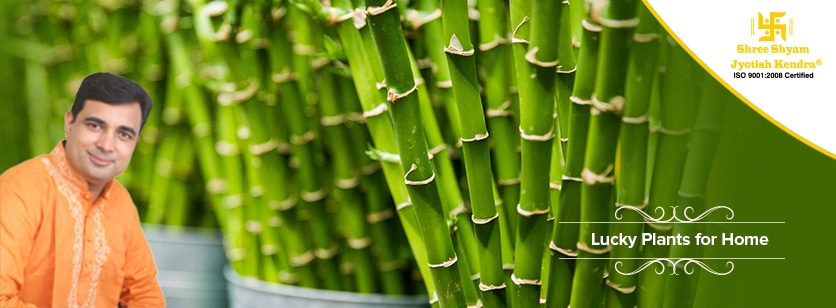
Vastu Shastra is an ancient science that deals with the right way of living. Having survived for thousands of years through written records and the knowledge passed through generations, Vastu Shastra studies the elements and their energies as they exist in a person’s surroundings. Vastu then draws out the results that these energies will have on a person’s life. This involves everything, from knowing the right place to put a mirror to the position of your bed in your bedroom, including things that you use as decoration. The plants in your home are no exception to this. Through different plants in your home, you can generate and invite positivity and prosperity in your home. This is why there are a number of plants that hold a special place in our homes and in our tradition. Also, along the same lines, there are several plants that people are often told not to put in their homes. This blog lists all the plants that you should keep in your home according to Vastu Shastra, and which ones to avoid keeping in your home for the best results.
5 Plants To Keep In Your Home For Good Luck
- Holy Basil or Tulsi: Tulsi or the holy basil has been a part of the Indian culture for a long time now. So much so that you can still see a number of old traditional houses with a tulsi plant in the centre of their courtyard even to this day. Modern science has recently uncovered the truth about Tulsi plants that have been known to our culture for centuries, that the Holy Basil makes oxygen 24×7, making it a great plant to keep in our houses. These plants are holy and bring a lot of positive energy to our homes, especially when kept in North, East, or Northeast directions.
- Bamboo: Bamboo plants signify growth, luck, and peace as they tend to grow quickly and create a positive vibe around them. They are also often associated with Fame and wealth. However, instead of choosing the dark green bamboo, opt for the ones that are tinted yellow in their bark. Keep them in the east or southeast corner.
- Money Plant: As the name suggests, money plants are a well-known symbol of the growth of a person’s finances. Keeping a money plant in the house and taking good care of the plant is known to bring wealth and prosperity to the home. The Southeast direction, which is presided by Lord Ganesha, is the best place to keep the Money plant.
- Banana Tree: For the peace of mind and financial stability in life, Vastu Shastra even suggests planting a Banana Tree in your backyard. Banana trees are considered sacred in our culture and are even worshipped in a number of regions in India. The northeast corner of your backyard will work the best for the banana tree.
- Neem Tree: Neem is not only a big part of Ayurveda but is also considered a sacred tree in the Indian culture. It generates positivity and happiness while also keeping the bugs away from your home owing to its medicinal properties of the plant. The Northwest corner is the best place to plant a neem tree.
- Bonsai: Though they look great, Bonsai Tree actually brings bad luck with them.
- Tamarind: Tamarind trees are known to be the anchors of negative energies, which is why they must be avoided in the house.
- Dead Plants: Dead plants or even dying plants must never be kept in homes as they signify ill-health and even death. This also goes on to tell you how you should also take proper care of your plants.
- Cacti: Cactus or any thorny plants are not at all Vastu friendly as they bring disputes into your house.
- Cotton: Cotton plants are also considered inauspicious, which is why they must not be planted in your homes.
5 Plants To Avoid Keeping In Your Home
Plants are good as they give your house a fresh look while also bringing good luck and peace to your home. But keeping only the right plants in the house is also important. This is why the best Vastu expert in India, Pandit Pawan Kaushik often talks about the importance of pleasing the Vastu Purush of a place while planning your house. For more information on Vastu Shastra and Vastu Remedies, book your appointment with Pt Pawan Kaushik today.
 +91 9990176000
+91 9990176000 +91 9999097600
+91 9999097600
 CALENDAR 2024
CALENDAR 2024










